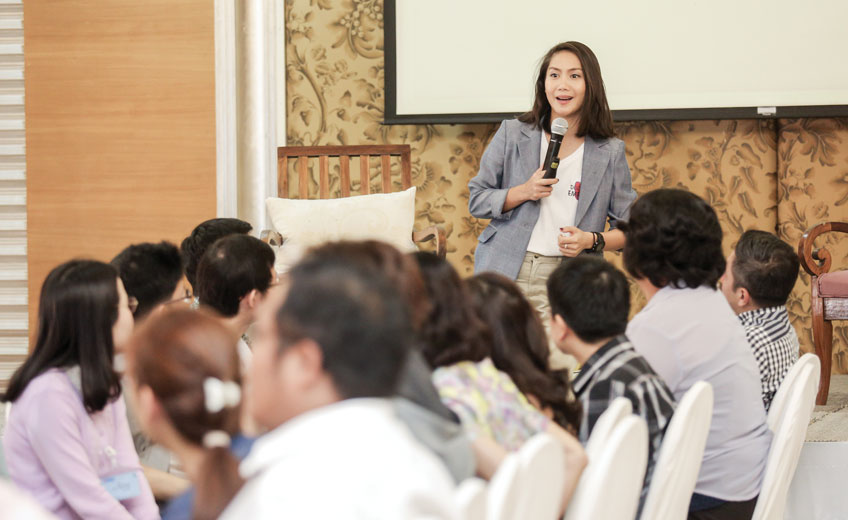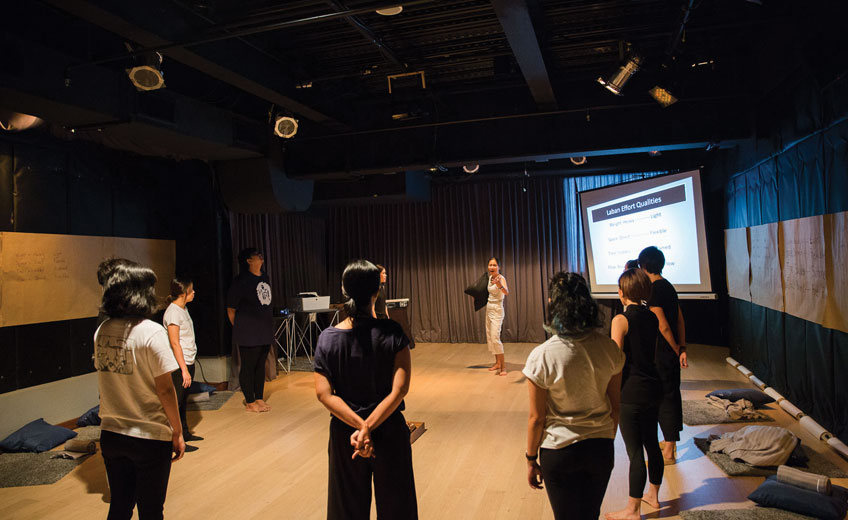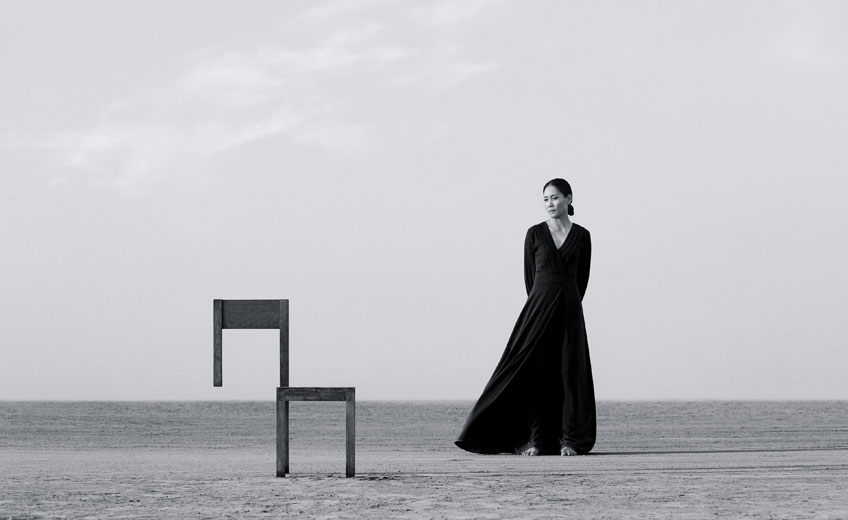Dujdao Vadhanapakorn entered the doctor’s office. She had a cough and flu-like symptoms, and sought an informed opinion on whether she should be taking medicine. “The doctor was at her desktop, working on some document,” recalls Ms Vadhanapakorn, who goes by the nickname Dao. “‘Sit down. What’s wrong? Tell me.’ She sounded angry. I was sitting next to her, but she wasn’t facing me. She made me feel as if I had barged into her dorm room without her permission.”
Dao wasn’t actually ill. She had fabricated her symptoms in order to collect data for her next workshop. Field research, as it were, for her day job.
Frequently travelling to workshop sites across Thailand, Dao teaches empathy communication to doctors and nurses at the 45 hospitals in the Bangkok Dusit Medical Services (BDMS) network. Physicians at every BNH, Samitivej, Paolo Hospital, Royal Hospital and Bangkok Hospital in Thailand – as well as two in Cambodia – work with her to develop and improve communication skills, from body language to tonality to active listening, so that they can better treat patients. It is a ground-breaking programme in Thailand, and so far the only one of its kind.
“Many of these doctors are great on a clinical level, but they lack good communication skills,” she says, seeming to float slightly out of her chair at Le Café des Stagiaires. Even after a day of work at BNH Hospital, she remains upbeat, her posture perfect, the white blouse she’s wearing utterly unruffled. “In Thailand, doctors tend to treat only the body, your physical conditions. As a patient, you need more than that. You need to be embraced, understood, and listened to.”
Unflappable and with an infectious buoyancy about her, Dao seems to be the perfect woman for the position in which she finds herself. If established doctors, a typically self-confident subset, will take lessons in empathy from anyone, it reasons they will take them from a woman who doesn’t ask to be listened to. “When I started doing this [five years ago], I tried to convince these people how good I was. Now I design workshops around experiential learning so that they have the freedom to explore their own skills,” she says. “I’m not doing this to be accepted by anyone.”
Nor is Dao teaching Thailand’s top caretakers in order to fulfil any of her professional dreams. She is an artist at heart, known in the public eye for her experimental theatre performances and past work in media. After graduating from Thammasat University, she found herself on Channel 5 hosting travel programmes. She even landed cameos in The Lady and Only God Forgives. But her passion has always been the stage. Dao has performed as part of B-Floor Theatre since 2002 and netted a number of accolades from the Thailand Theatre and Dance Awards for her forward-thinking work. Her most recent award-winning performance, Blissfully Blind, combined physical movement with a light installation created by Mont Watanasiriroch of Zieght.
Remarkably, she has achieved this success despite having had no formal training in dance or theatre in her youth, excluding stints in the drama clubs at Horwang School and Thammasat. She didn’t even take dance lessons as a child. “I didn’t have that privilege. I was the one volunteering for things, the one dancing at New Year’s parties,” she says coolly, without breaking her rhythm. In fact, a steely determination for self-growth might be her most defining quality. “Throughout my life, I’ve just wanted to gain more skills. I’ve never thought about a career path,” she admits.
However obliquely, that internal drive has led her to BDMS, and the experiences that have led up to it have given her work in empathy communication its unique shape.
After graduating from university, a friend directed her to an advertisement on Pantip.com for a B-Floor casting call, which she attended without expectations. “I had seen one of their performances the year before and knew that I wanted to do what they were doing,” Dao recalls, her eyes glowing and clear. “They didn’t tell me not to come back, and I’ve never left B-Floor.” Thanks to her work in the theatre company, Dao says she began to notice changes occurring within herself. Each practice would elicit certain memories, and she wondered where the nexus between body and mind existed, how these new channels in her mind were being opened. She decided to find out for herself. “I Googled master’s programmes,” she confesses with a smile.
Whether talking to her or seeing her perform, it becomes clear she does not shy away from challenges but rather lets them flow through her. When she set off for London to pursue a master’s degree in Dance Movement Therapy from Goldsmiths University, she says she approached the coursework, as well as the extracurricular work, with an open mind. “I spent two days every week working with elementary school children with learning disabilities,” she recalls. “I was used to being on a stage; I never imagined myself working in a school.”
When she returned to Thailand – with a degree in a field few in this country knew about – she was introduced to Dr Jom Choomchuay, the thought leader in paediatric care and mental wellness. She took a job at his esteemed Merak Clinic in Nonthaburi, providing one-on-one and small group dance therapy classes to children. The sessions involved limited verbal communication – just enough to explain the concept before Dao would play music and let the kids move. “I told them, ‘Listen to your heart and talk to me through your body.’”
Her coursework had taught her to notice even the smallest movements. “The kids could be sitting all session, and that’s okay. Sitting is movement, it has meaning. Your body language says a lot about what’s going on inside of you,” she says. “Dance therapy gave them time to be themselves, and space to explore what’s going on in their mind in a safe way.”


Her coursework also honed her art. “I realized the power of human connection through my therapy. The audience cannot be passive in my work any more,” she says.It should come as no surprise that, after she was approached by BDMS to join their team, dance therapy and theatre have continued to influence her work. Dao gives lessons Thai doctors don’t typically learn in medical school at workshops that range from half-day sessions to three-day camps. Breaking bad news and dealing with angry or depressed patients, she says, requires special skills most have never thought about, let alone been taught by a mentor or employer. She encourages them to more deeply consider the way they use unspoken language when they interact with patients.
Arts and sciences, however, do not always mesh. “The first hour of every workshop is a nightmare for me. They may not think [these skills] will help them practise medicine, but many patients don’t want to meet their doctors, and that’s a problem,” she says, with the kind of patience only a person who works with the initially unwilling could possess.
To get these academically oriented professionals to lighten up, she employs theatre exercises and role-playing games “so they can all fail together and learn to laugh at their mistakes”. She also brings in fellow actors to help with role-playing activities. “Theatre people understand humans, because they know how to empathize with other characters,” she says.
While there is much work to be done, Dao has already witnessed remarkable growth among the doctors and nurses she has met. “We started four or five years ago, and now empathy has become a core value of the organization [BDMS]. Medical schools have invited my team to teach empathy communication to the students. I’m proud of that.” Impressively, she says the hospitals never asked for empathy communication training – that was her idea. “I think empathy is the core principle underlying everything,” she says. “Everyone needs empathy: teachers, lecturers, parents, friends. We should be learning [empathy] from the very first day of our lives.”
The fruits of her labour may not yield immediately, but Dao believes change is underway, and not just in her niche. “Nowadays, you can talk about mental health issues with your friends, maybe your bosses. Even five or 10 years ago, you couldn’t do that,” she says.
Perhaps Dao’s next step might be bringing empathy training to universities, or dentists, or politicians. “I will never quit being an artist. It’s a part of my character, my personality,” she says, yet adding, “I want to have a bigger impact on society.” For this artist, who follows life where it leads her, there are no limits to the possibilities.




















































































































































































































































































































































































































































































































































































































































































































































































































